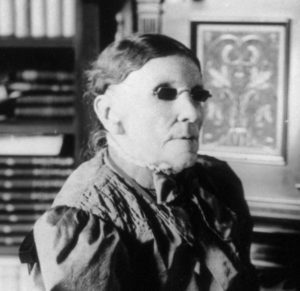“The Beatitudes” – Rolando de Nassau
The Beatitudes

Les Béatitudes, Cesar Franck
The Beatitudes are among the most appreciated passages from the New Testament.
We are always intrigued by Jesus ‘ statements, contrasting current appearances and future realities, about those who will enter in the kingdom of God (Matthew 5:3-12; Luke 6: 20-26).
The message would be that one can be happy, even when he suffers. But it goes further, to add the spiritual aspect of life: happy the poor, “in spirit”; happy those who are hungry and thirsty, “of justice” It’s a path to happiness, for God is the One who invite us. This is difficult for the children.
The Beatitudes, after all, define the character of one person; are promises that are contained in the Gospels, vade-mecum of the Christian (John Stott, Contracultura cristã, pp. 18-47; São Paulo: ABU Editora, 1981).
According to Matthew, a standard was established by Jesus; it is a great for someone to enter in the kingdom of God.
To the Evangelist Luke, the beatitudes showed that the kingdom of God could fill the empty of each person’s life.
The joys of this kingdom are enjoyed by those who have found in God the great prize.
God knows what we need. We must have a conduct different of the hypocrisy of the religious and the materialism of the atheist.
The Beatitudes are not merely a promise; mean a radical change in worldly values; were a relief to those who suffered, at the time of Jesus (now in our days), with poverty, hunger, thirst, nudity, sadness and discrimination.
The Beatitudes refer to a new relationship with the life; find that the kingdom of God is an advantage to those who need help in their material, spiritual or psychological vulnerabilities.
All believers are expected to experience the beatitudes, and therefore give glory to God! (David Martyn Lloyd-Jones, Estudos no Sermão do Monte, pp. 28-36. São José dos Campos, SP: Editora Fiel, 1999; Roberto Torres Hollanda, Os ensinos de Jesus, pp. 57-58. Brasília, DF: Editora Tagore, 2022).
In view of the importance of Jesus’ teachings in the Sermon on the Mount, it was to be assumed that the Christian composers would be interested in producing works on this subject.

Fanny Crosby
It was timely in 1875 the admonition of the hymnographer Fanny Jane Crosby (1820-1915) to the musicians of her time: “You know how to speak of that in this world there is, but don’t know God’s word that all gives?!” (Cantor Cristão, no. 421; Hinário para o Culto Cristão, no.57). Fanny Crosby spoke to “hopeless men” about the beatitudes.
Perhaps because it is easy to belong to a Christian church, but difficult to observe and proclaim in his musical art the Jesus’s teachings, many composers have been silent.

César Franck
After long research, we found that in history of erudit music only one composer devoted attention to this theme: César Franck (1822-1890), in his oratory “Les Béatitudes”, composed in 1870.
We became aware of the work in 1992, by CD recording, performed by “Gächinger Kantorei” and “Radio-Sinfonie Orchester”, from Stuttgart (Germany), conducted by Helmut Rilling.
It’s a great epopee! The interventions of “Jesus” represent the most beautiful in the score.
Rejecting the frivolous music of his contemporaries, César Franck, a deeply believing man, understood what was to be church music, giving it due seriousness (Norbert Dufourcq, La musique française, pp. 30-34. Paris: Larousse, 1949).

Alexandre Reichert Filho
Write something, even if it was simple, that could be sung in a church, during a service, demanded of the composer Alexandre Reichert Filho (1949-2020) a work to appear with merit in the gallery of those who contributed to evangelical music.
Imitating Léo Schneider and Guilherme Loureiro, he (in the composition) and “Arautos do Rei” (in the execution) count with our most effusive applause!
Rolando de Nassau.
Brasília, DF, on October 21, 2022
Doc.HC-134
© Copyright by Rolando de Nassau – Used with Permission






